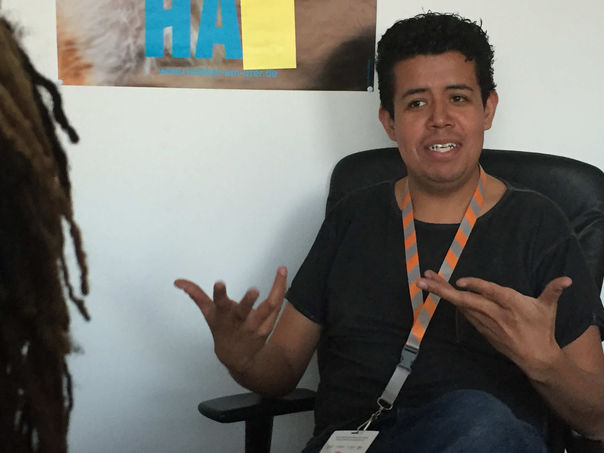Through the Eyes of a Compatriot
Isabella Akinseye interviews her Mexican Berlinale Talent Press co-participant Sergio Raúl Bárcenas Huidobro on Joaquín del Paso's Berlinale Forum film PANAMERICAN MACHINERY.

Sergio Raúl Bárcenas Huidobro
The Berlinale Forum film PANAMERICAN MACHINERY (MAQUINARIA PANAMERICANA, Mexico/Poland) by Berlinale Talents alumnus Joaquín del Paso tells the story of the workers in a fairytale workplace where staff are treated like family until the sudden death of the owner. The film gives a dark and convoluted view on Mexican economy which differs from the optimistic treatments in the international media. This contradiction led me to interview my Mexican Talent Press colleague, Sergio Raúl Bárcenas Huidobro, to ascertain his view of this film from his home country.
“Yes, we have the problem of organised poverty and crime in Mexico,” Sergio acknowledges. “But in the film, the characters are caricatures. It ends up coming across as providing comedic relief which doesn´t work well. It seems like the filmmaker has an obvious need to prove his intelligence or abilities.”
Commenting on the film’s complicated sub-plots and stylistic elements, Sergio says, “Even for a Mexican viewer, PANAMERICAN MACHINERY is not easy to understand. I think the filmmaker inserted them for dramatic interest but overall, it adds nothing to the plot.” I ask Sergio if he thinks the material will appeal to a wider Mexican audience. “This film won´t have any real distribution back home,” he replies. “It is more for the international audience and festival circuit who are comfortable seeing poverty and corruption in the Third World. Unfortunately, the average Mexican viewer is still okay with Spanish soap operas.”
As for his overall impression, Sergio concludes, “The film succeeds in showing the changes in Mexico’s socio-economic realities and raises serious questions about the positive trajectory being celebrated in the media. On the surface, Mexico is this company where everything works until the wool is pulled from our eyes. Now the question is do we brace up for the harsh truth or like the workers in the film, do we keep lying to ourselves and keep trying to salvage a dead situation?”

